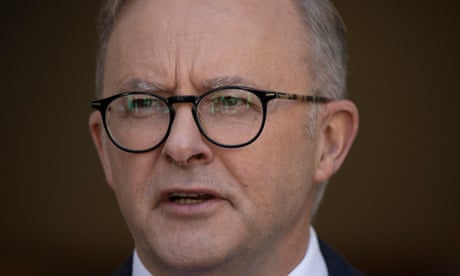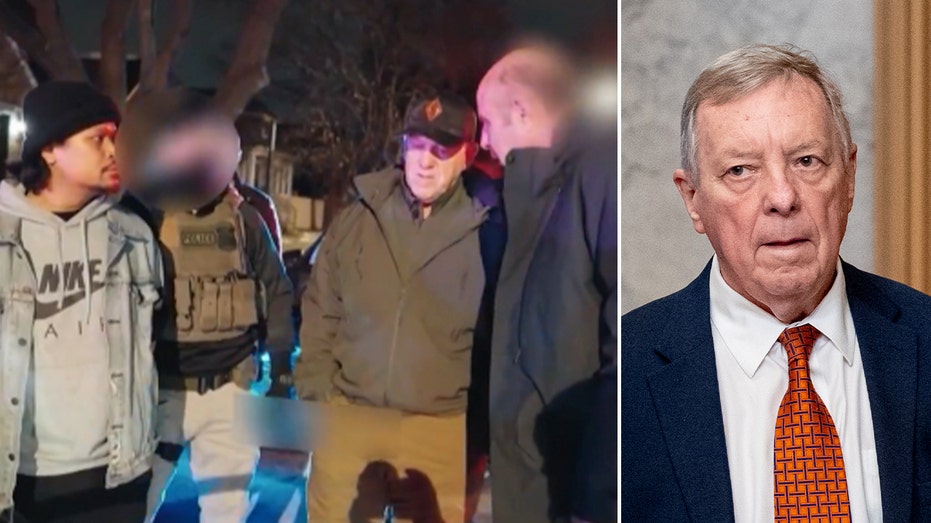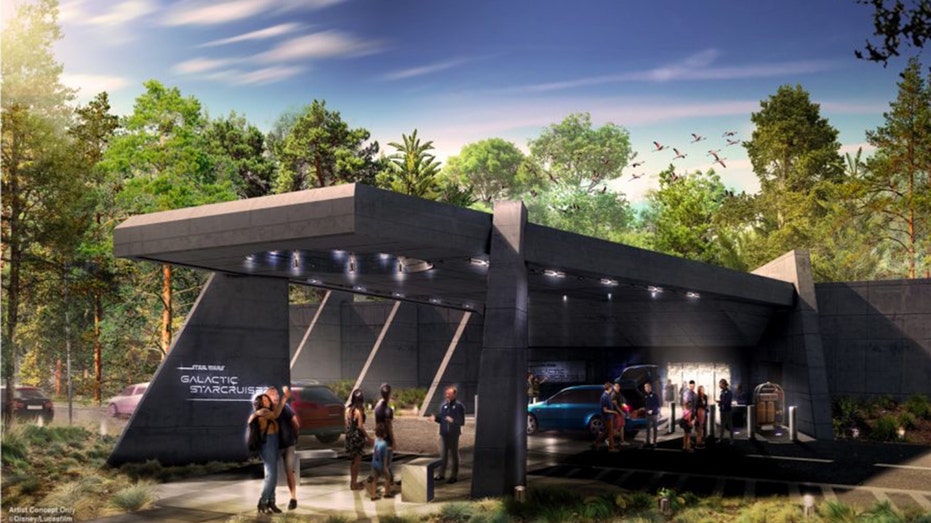- by foxnews
- 02 Feb 2025
Albanese says Indigenous voice next step in reconciliation and opponents ‘trying to start a culture war’
Albanese says Indigenous voice next step in reconciliation and opponents ‘trying to start a culture war’
- by theguardian
- 05 Feb 2023
- in news

Anthony Albanese will pitch this year's voice to parliament referendum as a gesture of trust in the Australian people at a time when increasing polarisation and misinformation means democracy needs to be "nourished, protected, cared for, treated with respect".
Referencing the 2021 Capitol insurrection in Washington and the recent uprising in Brazil - violence triggered because people "had fallen headlong into poisonous conspiracy theories" - Albanese will tell a thinktank on Sunday that leaders need to "heed the warning" of those events, and take steps to safeguard democratic liberalism, according to an advance copy of his remarks.
Albanese this week used an interview with Guardian Australia's political podcast to signal his intention to press ahead with the referendum to establish a constitutionally enshrined First Nations body even if a lack of bipartisanship means there is a high risk of a no vote.
On Sunday, the prime minister will argue the looming referendum is not only the next landmark in the long process of reconciliation with Indigenous Australians, but also a civic exercise in finding "common ground amid differences" and seeking meaningful change while "bringing people with you, empowering and including Australians in the work of progress".
Albanese will tell the Chifley Research Centre Conference that his opening months as prime minister have been focused on steps to restore trust in political integrity - exemplified by legislating Australia's first federal anti-corruption commission - while "delivering for people, repaying their faith, proving worthy of their trust".
The prime minister will characterise this year's national deliberation about the voice as an exercise of bringing people in, "recognising that trust in democracy needs to travel both ways, and that governments need to be prepared to put their faith in the judgment of the Australian people".
He says as prime minister, he trusts the capacity of Australians to "engage with complexity, to look to the long-term".
Albanese will say the authors of the constitution put the same faith in the people of Australia by believing in the constitution's "pivotal role in our democracy" while understanding that a society is never static.
"They didn't imagine [the constitution] was perfect, complete, the final word set in stone," the prime minister will say. "That's why they included specific and detailed provision for altering it.
"The architects of our federation understood that democracy is dynamic, not static, and that change driven by the people is not a threat to the system - it is a vital and necessary part of it."
With the opposition leader, Peter Dutton, demanding more detail before he commits to a position on the voice, Albanese will argue the government's model of resolving the voice - to seek in-principle approval for the reform from voters, then allow parliament to determine the specifics of the advisory body - was consistent with how the drafters of the constitution had approached the founding document.
He nominated the defence power as an example, where the constitution says the commonwealth parliament will have power to make laws for the naval and military defence of the commonwealth without spelling out the size of the Australian defence force, where it should be based, or what sort of equipment should be used.
"The authors of federation understood - as servants of democracy - that it was for government, parliament and the people to deal with the detail and the implementation, through legislation."
Sunday's speech, circulated by the prime minister's office in advance of its delivery, is a scene-setter for the parliamentary year, which begins on Monday.
Albanese will again signal his door is open to all non-government parties to come forward with "any constructive contribution to the legislative process, to the shape of the campaign, to the success of the outcome".
He will argue the voice is predicated on two principles - recognition and consultation. The prime minister argues adding an enshrined structure for consultation and co-design in a form suggested by Indigenous Australians will disrupt a long tradition of "imposing decisions from Canberra" and "ignoring the wisdom of community" - approaches that have not helped stop cycles of disadvantage.
Albanese will argue the voice is the best chance to change a habit of "repeating the same process and expecting a different outcome" because "better results are desperately needed".
In a pointed message to Dutton, he will say respecting the model proposed by Indigenous Australians through the Uluru Statement from the Heart is an opportunity for the parliament to unite and make it a reality by "rejecting the false choice between constitutional recognition and practical outcomes - and embracing the fact that we need constitutional recognition to improve practical outcomes".
Looping back to the intersection between the referendum and democratic decay, Albanese will acknowledge there are opponents and mischief makers "pushing misinformation on social media, drumming up outrage, trying to start a culture war".
He says noisy pushback is "an inevitable consequence of trying to achieve change".
"But moments of national decision, such as this referendum, are also an opportunity for our people to show their best qualities: their generosity, their sense of fairness, their optimism for the future," Albanese will say.
"The voice will be a national achievement in which every Australian can share - to campaign for it, to vote for it, to celebrate its success, to play their part in an historic step forward for our country, to embrace a better and fairer and more respectful future."
- by foxnews
- descember 09, 2016
Disney reveals fate of closed Star Wars hotel
The building that was formerly home to the Star Wars: Galactic Starcruiser at Walt Disney World in Orlando, Florida will be repurposed, the company confirmed to local media earlier this week.
read more


